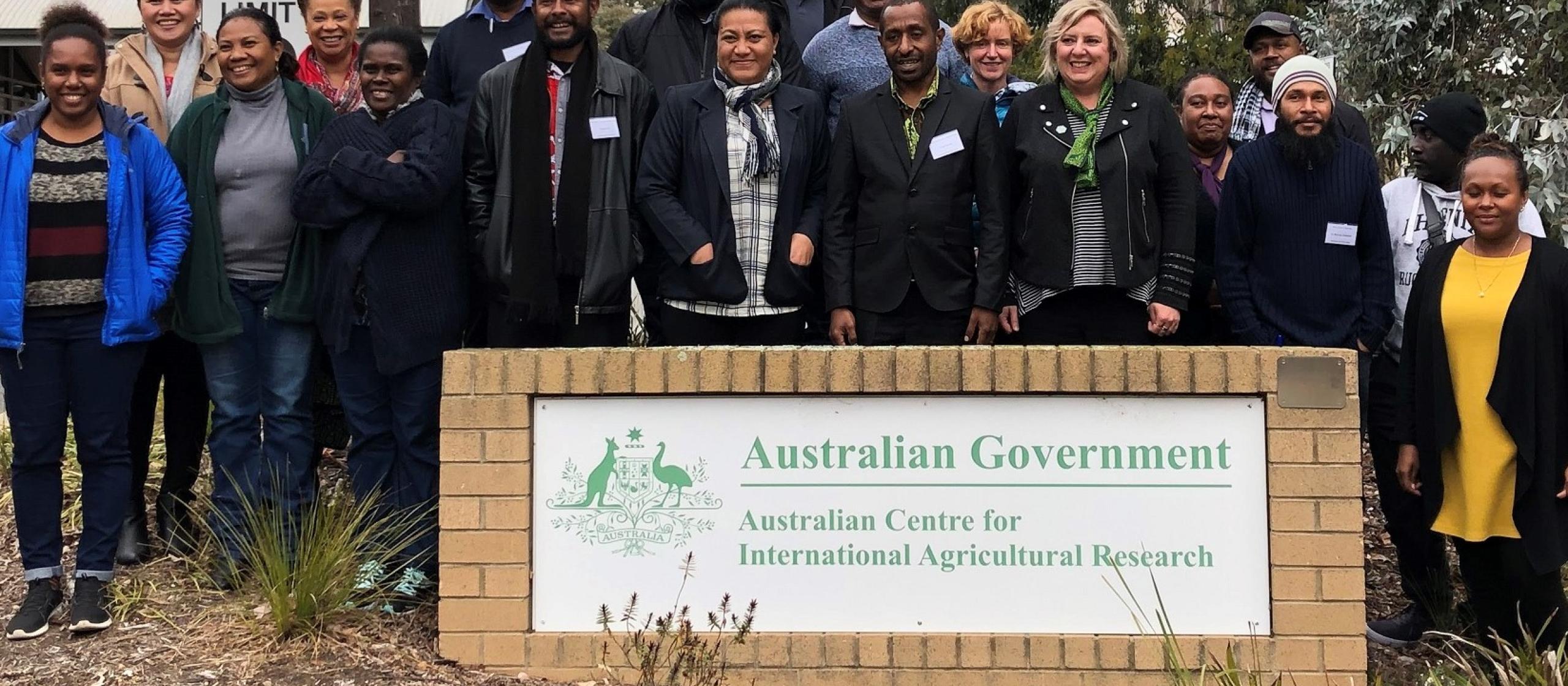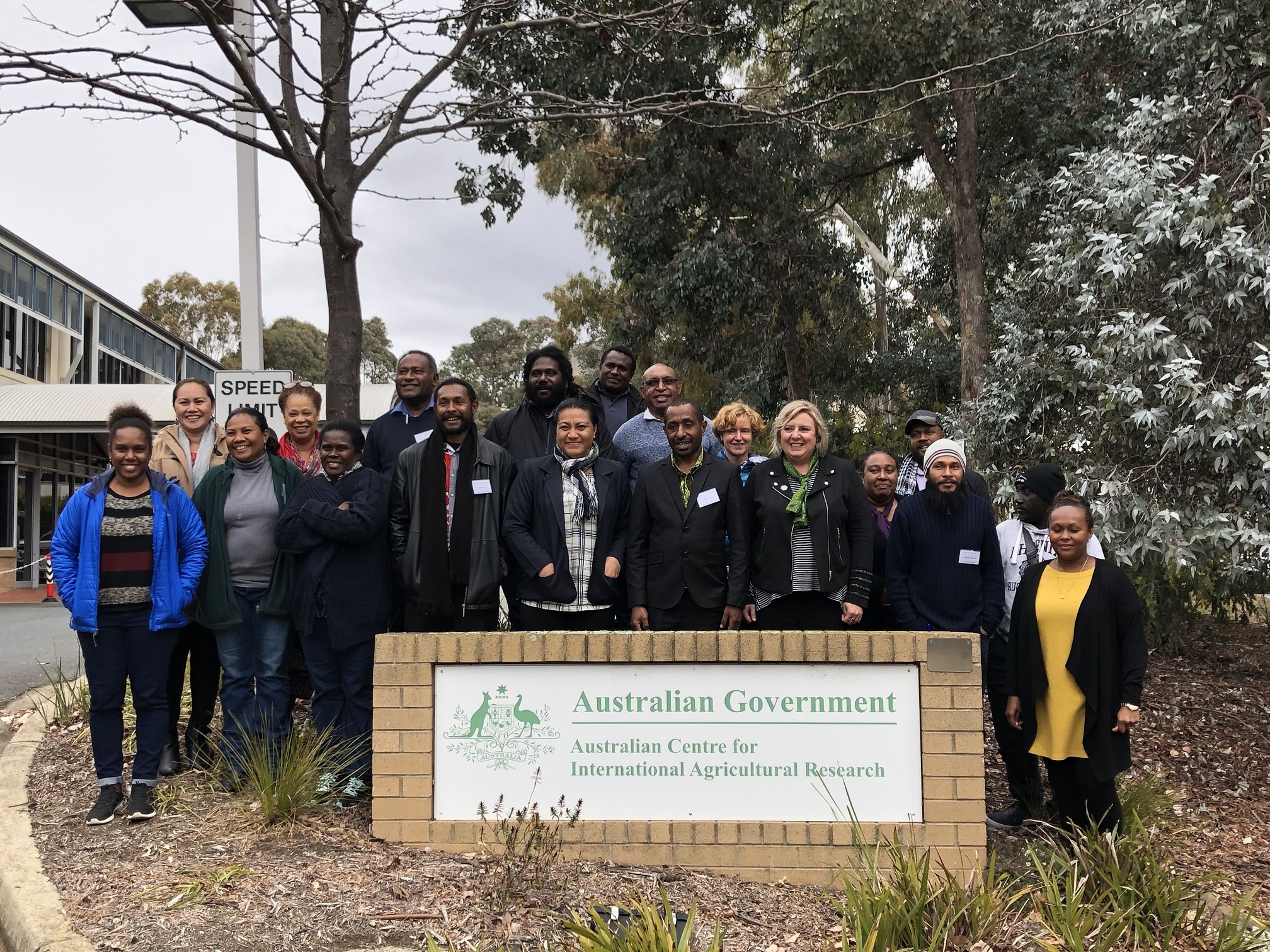- HomeHome
-
About ACIAR
- Our work
- Our people
-
Corporate information
- ACIAR Audit Committee
- Commission for International Agricultural Research
- Policy Advisory Council
- Agency reviews
- Executive remuneration disclosure
- Freedom of information (FOI)
- Gifts and benefits register
- Information publication scheme
- List of new agency files
- Contracts
- Legal services expenditure
- Privacy impact assessment register
- Commonwealth Child Safe Framework
- Benefits to Australia
- Careers
- 40 years of ACIAR
-
What we do
- Programs
- Cross-cutting areas
- Resources
- Where we work
-
Funding
- Research projects
- Fellowships
-
Scholarships
- John Allwright FellowshipScholarships to study in Australia for ACIAR partner country scientists to have Australian postgraduate qualifications
- ACIAR Pacific Agriculture Scholarships and Support and Climate Resilience Program
- Alumni Research Support Facility
- Publications
- News and Outreach
Date released
07 November 2019
What would the Pacific look like in 20 years... if it was a food-secure and healthy region?... if research was better managed and coordinated towards the sustainable impact on farmers’ livelihoods?
The answers to these questions are the dreams of emerging leaders at ACIAR’s partner organisations in Papua New Guinea (PNG) and the Pacific who are participating in a new program to strengthen the capacity of their institutions.
The first institutional John Dillon Fellowship (iJDF) is a six-month professional development program that provides a blended learning experience combining leadership training with industry visits and networking opportunities. It aims to arm fellows with skills, knowledge and connections to advance their institutions and enhance agricultural research and policies in the region.
‘There are numerous challenges facing the Pacific’s agriculture and food systems,’ says Joy Hardman, who is coordinating the program on behalf of ACIAR.
‘We hope the fellowship will ultimately strengthen the region’s capacity to tackle these challenges.’ The iJDF program involves 16 fellows from institutions across PNG, including the National Fisheries Authority, the National Agricultural Research Institute, the University of Technology, the Science and Technology Secretariat and the Autonomous Bougainville Government’s Department of Primary Industries, along with regional partner the Pacific Community (SPC).
These organisations are a mix of policy, research and implementing agencies which underpin agriculture sector development.
Following an introductory module delivered in PNG in May, the fellows completed a two-week intensive module in Australia in July and August. The core program is being delivered by the University of the Sunshine Coast (USC), supported by the Australian National University and Southern Queensland University. It will conclude in October.
Training covers project management and developing research proposals, as well as themes of ethics, gender equity, policy and governance. People skills are a critical aspect of the program, including brokering relationships, influencing and working with stakeholders.
Robert Kei is an entomologist at the National Agricultural Research Institute (NARI) in PNG, participating in the program along with two colleagues. He says he valued the training in planning and managing scientific projects. ‘The training covered how to tailor a project for its context taking into account political, environmental and social factors—it’s not “one size fits all”,’ says Mr Kei.
With an academic background, Mr Kei is in a strong position to mentor young researchers at NARI, both male and female. Developing leadership skills to effectively support them is his primary motivation for participating in the fellowship.
Through the program, Mr Kei has also had the opportunity to build relationships with the two other NARI fellows, who are located at different research stations in PNG.
‘The program aims to strengthen networks within, as well as between, ACIAR partner institutions,’ says Ms Hardman.
‘Having multiple people from the one institution creates critical mass within that institution and enables change. Strong relationships are built around the shared learning curve.’
The program has been developed in consultation with the fellows’ institutions to address organisational needs. Each agency group has a specific management project to deliver as part of the program that provides an agency agreed context in which the fellows can apply their learning. This approach aims to ensure the benefits of the training are felt by the institution more broadly. Fellows are also supported by senior leaders acting as mentor-coaches for the duration of the program.
‘The iJDF is very well supported by the participating agencies, with outcomes embedded into the fellows’ personal development plans,’ says Ms Hardman.
‘It is a wonderful opportunity to learn about leadership,’ adds Azaria Lesa-Ah Kau, who works in the Land Resources Division of SPC in Fiji.
Originally from Samoa, Ms Lesa-Ah Kau does work that spans many countries and teams and says she particularly appreciates the program’s focus on how to influence decisions.
‘Understanding who you need to influence and how, and taking into account cultural differences, is very useful, particularly in a male-dominated sector,’ says Ms Lesa-Ah Kau.
‘You need to influence sideways as well as up and down.’
For Ms Lesa-Ah Kau, the most valuable aspect of the program to date has been her exposure through it to the diverse backgrounds and experience of the other participants and to new ways of thinking and acknowledging the cultural differences in the region.
‘I have learned so much from my PNG colleagues. With their experience in managing whole project cycles, they have shared many new things which I can apply—practical tips as well as philosophies,’ she says.
The program is an expansion of the original John Dillon Fellowship which has been running since 2002 to further the professional development of outstanding mid-career agricultural scientists, economists and researchers.
‘Without transformative leadership, nothing will change,’ says project leader Tami Harriot, Manager of USC’s Centre for International Development, Social Entrepreneurship and Leadership.
‘We are arming the fellows with tools and technical knowledge, as well as capability and confidence, to support change.
‘There have been real lightbulb moments when participants have realised what they can actually do: effect change, have an impact and bring others on the journey. They believe they can make a difference and are taking accountability for what happens next.’




